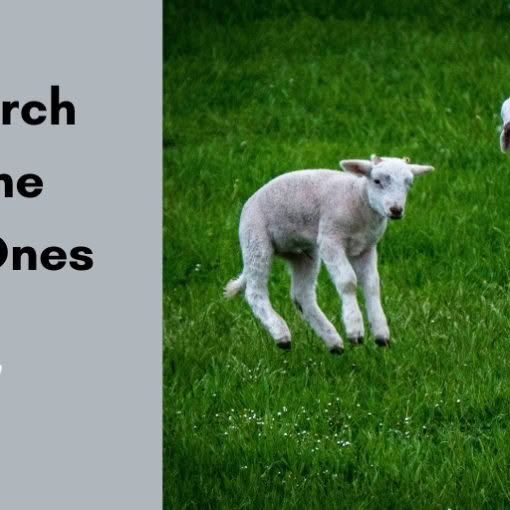People can say some harsh things to us, but when someone close says ‘Curse God and Die’ you have to go to a deeper place of faith than they possibly have.
I was watching him wilt. He was once like a flourishing plant, enjoying water and sun and growing and giving out beauty. But now the water had dried up, the sun beat down like a torturer, and the once gentle winds were hammering and stripping him down to a skeleton.
Who will come
To the aid
Of a man like me
Who will come
to a man of povertyWho will rescue the ship
From the wayward sea
Who will come
To a man like me Derek Lind
Shooting the wounded
The first book I read about Mental Health and Christianity was ‘Why do Christians shoot their wounded‘ by Dwight L. Carlson. It’s a classic, in my opinion.
The author writes from a place where he has seen people with Mental illnesses getting wounded by well-meaning but ignorant Christians saying the mental illness was due to some sin in their life.
This ‘shooting of the wounded’ still goes on today, and it’s been around a very long time.
Whatever we don’t understand and are uncomfortable with, we attribute to sin. This calamity is because of something you’ve done wrong and God is punishing you.
It’s the law of retribution. You do something wrong, and you get the punishment. You do something good, and you get the reward. If bad things are happening, you must have done something bad.
But what if you have done nothing wrong and bad things happen.
The whiplash of the tongue
That’s the situation of the biblical character Job.
Every measure of what we would call success had been taken from him. His health, his wealth, his children.
He goes to the place which feels the most welcoming to his heart. The local dump site. There he sits in the ashes of yesterday’s goodness and picks at his skin.
That’s what you do when life is hollowed out. You grieve and go to a cave.
Another response, one of many, as we will see, is to lash out, particularly at those close to you and God.
The first of the whip lashes was from his wife. She, too had seen the trauma and tragedy of her children dying (Job 1:13-19)
The tongue swings are wide and deep.
Job took a potsherd with which to scrape himself, and sat among the ashes.
Then his wife said to him, ‘Do you still persist in your integrity? Curse God, and die.’ Job 2:8,9
Note that before she told him what to do, we see an affirmation of Job’s deepest quality, the one being tested. His integrity.
This word integrity (tummah in Hebrew) could also be translated as innocence.
The Innocent
Here in New Zealand, we have recently had a conviction of a murder overturned.
Here is a portion of a news article
For the first time in 36 years, Alan Hall has left a courtroom an innocent man.
Hall was 23 when police targeted him for murdering Auckland father of five, Arthur Easton, in 1985.
Easton was fatally stabbed by a bayonet-wielding intruder who broke into his family’s Papakura home, and also wounded two of Easton’s sons, Brendan and Kim, during a prolonged struggle.
Hall was found guilty and sentenced to life imprisonment.
In a rare move on Wednesday, the same day his appeal was heard, the Supreme Court has overturned his conviction, declined to order a retrial, and instead entered acquittals to the murder charge and one of wounding, allowing him to walk free.Applause broke out in the courtroom as the judges adjourned. Stuff NZ

Here we have innocent Job with his wife demanding he walk away from God.
Curse God and Die
The tongue demands his compliance.
What does it mean to ‘Curse God.’
Essentially it means to reject God and God’s goodness. To walk away. Again it’s that law of retribution. If we do certain things for God, then God is expected to do certain things for us.
Job’s wife knows the innocence of Job but believes that this has got him and her nowhere. It hasn’t made their lives better instead it appears to have made them worse.
So she demands he walk away.
Essentially, she is saying this.
‘This ‘God’ business has not profited us at all.
You have blessed God, but God has not returned the favor.
So take the blessing back. Shake the God dust off yourself, and walk away in disgust.
Yes, you will die, but isn’t death better than this? Aren’t you near death anyway? Let’s get this suffering over with’.
She is right that when we walk away from God, something begins to die. The relationship begins to die. Something of ourselves begins to die. The creative life force begins to shrivel up.
Job’s wife, and we will find soon his friends, are caught up in the same belief that the satan is trying to prove. That Job is only in it for what he can get.
Thats the question we must face also. Are we only following God for what God can do for us?
What does faith mean now?
I get emails from people who are in deep distress. They pray for God to take their life, but nothing happens. There is a plea to God to end it all.
They wish, like Job they had never been born (Job 3).
Nothing happens. In fact, it might get worse.
They might have a husband, a wife, or a friend who questions their faith, much as we find here. But there is something deep within every one of them. An awareness of God. That God is there even though God may feel distant, obscure, mysterious, and even aloof to their present needs.
And that is where we journey with Job. We go deep into the knowing God even in the dark.
This place of darkness is where faith is deepened and a different faith emerges.
Perhaps a question that Job has and that we have too is this. ‘What does faith mean now?.’
Faith cannot rest. Faith definitions grow old as we move through our lives. Periodically we have to say, “Lord, what does faith mean now?” Richard Rohr. Job and the Mystery of Suffering
When someone, especially someone close, tells you to turn your back on God, remember you are not alone. You have Job alongside.
Quotes to consider
Job’s wife comes into the picture at this point. If Job has lost all his children and possessions, so has his wife. Mrs. Job is hurting too. And she’s not the image of patience he is. She says, “Do you now still mean to persist in your blamelessness?” She wants him to admit he made some mistake. She’s caught up in the retributive justice syndrome which believes he must have done something wrong or this wouldn’t be happening. She demands that he admit it. “Curse God, and die” (2:9). This is an interesting demand. She sees him at the edge of death and says, in effect, “At least get it out of your system, get it over with and die so I can get on with my life.” Richard Rohr. Job and the Mystery of Suffering
In view of this new calamity that has befallen Job, his wife—who is also affected by his misfortune and shares his unjust suffering—urges him to curse God. “Why persist in this integrity of yours? Curse God and die” (2:9).15 The issue here is literally the integrity to which I have referred. What his wife challenges is Job’s stubborn maintenance of his interior consistency and exemplary conduct. Adversity does not cause him to lose his innocence. The author wants to make it clear that Job’s perseverance in his religious outlook is a further expression of his disinterestedness. Gustavo Gutierrez. On Job: God-Talk and the Suffering of the Innocent
When negative voices are assaulting us, from the world, from the spouse, the children, the church, none of us is strong enough to stand against them unless we are in touch with true transcendence. Richard Rohr. Job and the Mystery of Suffering
An awful lot of religion is an excuse for not facing our fears and doubts. True religion is not denial but transformation. God walks with us into our fears, to feel them, to own them, to let them teach us. We need to say, “I’m afraid, Lord, how do I deal with this fear?” We tell God we’re hurting and life is falling apart. We’ve lost a job or a loved one, and we don’t know how to believe, hope, or love. Faith cannot rest. Faith definitions grow old as we move through our lives. Periodically we have to say, “Lord, what does faith mean now?” Richard Rohr. Job and the Mystery of Suffering
Questions to answer
- We started this post with a comment on ‘Why do Christians shoot their wounded. What’s it like to be on the receiving end of those bullets?
- Has someone criticized your faith and told you to walk away from God? How did you respond?
- What does faith mean now to you compared to a previous time?
Further reading
Barry Pearman
Photo by Stormseeker on Unsplash






